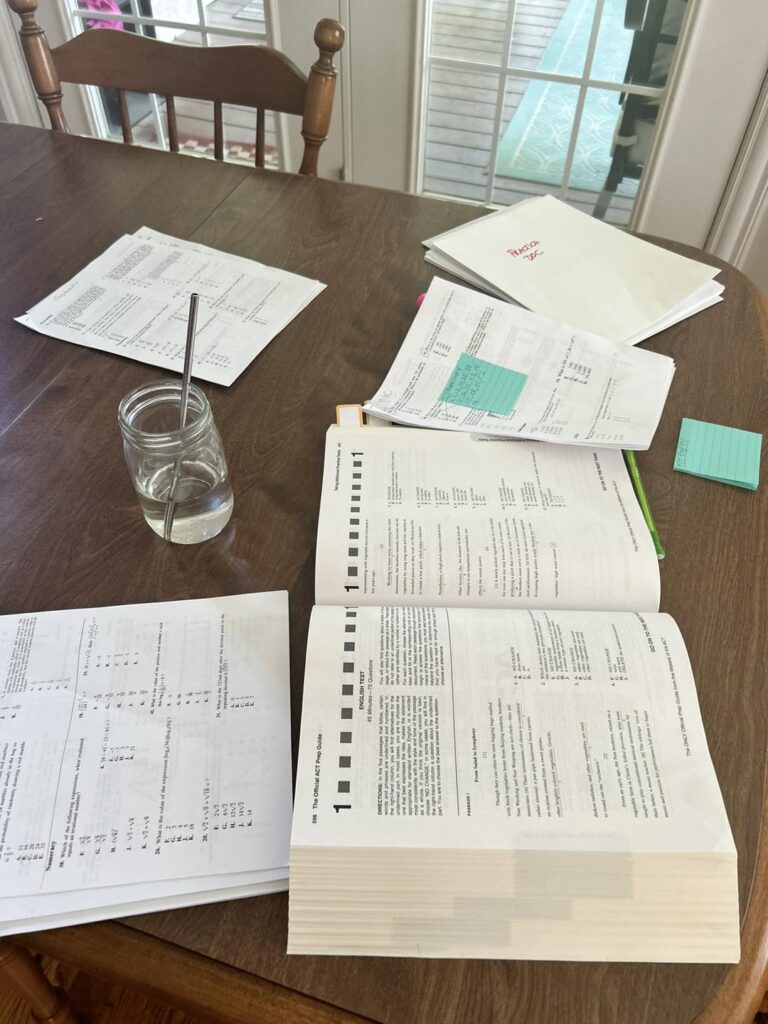I tutor a ton of students and though I have mixed opinions about standardized testing (that’s a long conversation I am not going to have now), I know that it is something students (and parents) have to address each year. Over the years, I have made many observations. This post is to share 10 of those observations about the ACT that I have made based on more than two decades of working with students and parents.
Again, these are my personal observations without any official research!

- I do not think students can improve their scores by simply doing more practice tests. Students must learn from learning the test. Repeating tests (official or practice) may make students more comfortable taking the test but it could also make them anxious because they get frustrated when their scores do not improve. What do I mean by learn the test? The test has patterns in types of questions and if they practice questions and also analyze the questions, they learn more about the test. Students can start to predict the types of questions asked on the test and better train themselves on how to answer those questions.
- Students who want above a 28 must use different strategies than students who have goal scores below 28. If your student wants to score a 28 or above, they have to target the entire test with speed and accuracy. If they want to score between say 20 and 28, there are some strategies they can do that improve their chances of achieving a score in that range.
- Do not sign your students up for so many tests! One baseline test, then prep for 2-3 months, then test again. In my experience, retesting without prep and significant work from your student will not change their scores much.
- You cannot recoup years of not loving reading in 6-8 weeks of prep for the ACT. If your student struggles most with the reading section, I find it’s often because they struggle with completing it within the time given, and these students typically report that they are kids that don’t love to read. During the prep time, it’s nearly impossible to address years worth of reading comprehension learning. The best thing to do is focus in on a strategy that will maximize the likelihood of getting a somewhat improved score and then practice that strategy.
- I don’t know why but students are coming to me not knowing conic sections and matrices. I’m just mentioning this because those topics are on the test and students need to know some of that content before taking their next ACT test. They don’t need to know ALL of that content, but enough to answer those types of math questions.

My scribbling 3 minute lesson on ellipses and hyperbolas - ACT prep is a commitment. The students I see that improve their scores do significant work outside of prep sessions and really attempt to analyze their work and the test.
- I have tutored a few students who have done everything I have suggested and they still do not improve their scores. Students can plateau. They are getting 28s repeatedly and really want that 30 but keep testing at a 28. That is OK. In the grand scheme of things, these students have still gone on to be very successful in college without that goal score!
- “My student is so good at science, I don’t understand why they can’t get a higher score on the science section.” Well, because that section isn’t really about how much science knowledge they have. The science section is most analysis. Can your student analyze scientific situation, graphs, data etc.
- If finances allow, individualized prep (or very small group) is the most effective. So many parents send their students to me after already investing in an ACT class (usually at the school) and report that these larger group sessions are not very effective. With individual or small group sessions, the prep can be catered toward your student and not to the perceived average student in a class.
- The only book students should be using to prep is the red one! It has official tests on it and the online dashboard is pretty good as well, which is important if your student plans to take the test online and not on paper.
